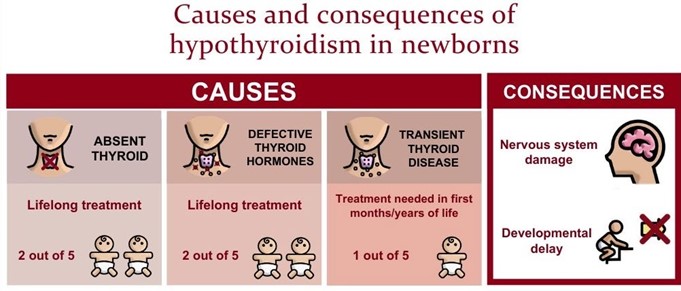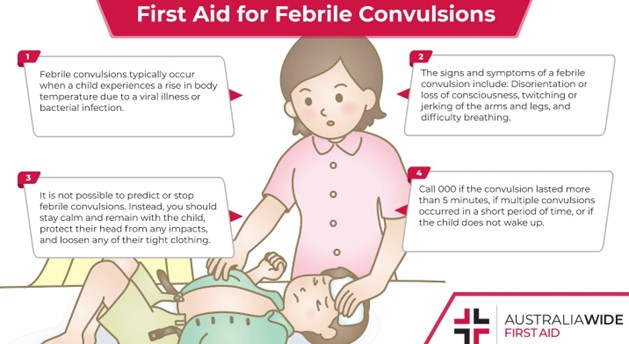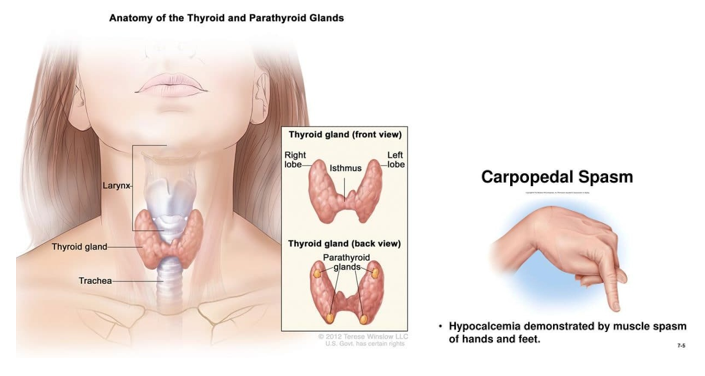A breastfeeding infant, screened for congenital hypothyroidism, is found to have low levels of thyroxine (T4) and high levels of thyroid stimulating hormone (TSH). Which is the best explanation for this finding?
The TSH is high because of the low production of T4 by the thyroid.
The thyroxine level is low because the TSH level is high.
The thyroid gland does not produce normal levels of thyroxine for several weeks after birth.
High thyroxine levels normally occur in breastfeeding infants.
The Correct Answer is A
In a normal infant, T4 levels increase after birth due to stimulation by TSH from the pituitary gland. In this case, the T4 level is low and the TSH level is high, indicating that the thyroid gland is not producing enough T4 in response to TSH stimulation. This suggests that the infant may have congenital hypothyroidism, which requires prompt treatment to prevent developmental delays and other complications.
The low T4 level is not a direct cause of the high TSH level; rather, the high TSH level is a compensatory mechanism to increase T4 production. It is not normal for a breastfeeding infant to have high thyroxine levels. While the thyroid gland may take a few weeks to reach normal function after birth, the persistent low T4 and high TSH levels in this infant suggest a more serious issue.

Nursing Test Bank
Naxlex Comprehensive Predictor Exams
Related Questions
Correct Answer is C
Explanation
The nurse should reassure the parents that febrile seizures typically decrease in frequency as the child grows older. Most children outgrow febrile seizures by the age of 5 years.
Ibuprofen is not typically used prophylactically to prevent febrile seizures.
Providing the child with a sponge bath for temperatures over 100.6°F (38.1° C) can help to lower the fever, but it will not necessarily prevent febrile seizures.
Avoiding excessive visual stimuli is not necessary for children with febrile seizures, as this type of seizure is triggered by a fever rather than visual stimuli.

Correct Answer is D
Explanation
Hypoparathyroidism is a disorder in which the parathyroid glands produce insufficient amounts of parathyroid hormone, which regulates calcium and phosphorus levels in the body. In hypoparathyroidism, there is a decreased level of calcium in the blood, which can result in carpal spasm or tetany when pressure is applied to the upper arm.
Therefore, the nurse should review the child's calcium level (D) to determine if it is within the normal range. Low calcium levels can cause muscle spasms, seizures, and cardiac arrhythmias. Hypocalcemia may also result in other symptoms such as numbness, tingling, and muscle cramps.
Potassium (A), chloride (B), and sodium (C) are electrolytes that play important roles in various physiological processes in the body, but they are not directly related to the development of carpal spasm in a child with hypoparathyroidism. While hypokalemia (low potassium) or hyponatremia (low sodium) can cause muscle weakness or cramps, these conditions are not typically associated with carpal spasm in hypoparathyroidism.

Whether you are a student looking to ace your exams or a practicing nurse seeking to enhance your expertise , our nursing education contents will empower you with the confidence and competence to make a difference in the lives of patients and become a respected leader in the healthcare field.
Visit Naxlex, invest in your future and unlock endless possibilities with our unparalleled nursing education contents today
Report Wrong Answer on the Current Question
Do you disagree with the answer? If yes, what is your expected answer? Explain.
Kindly be descriptive with the issue you are facing.
